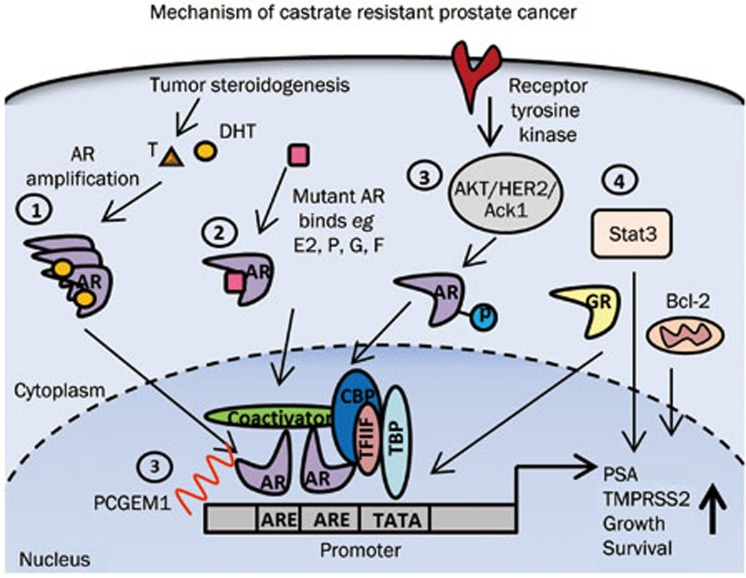Figure 5.
Androgen and AR action in castration-resistant prostate cancer. Mechanism of castration-resistant prostate cancer. Several mechanisms promote the progression of castration-resistant prostate cancer: (1) AR overexpression coupled with continued tumor steroidogenesis. (2) Promiscuous binding and activation of mutant AR by alternative ligands, such as estrogen (E2), progesterone (P), glucocorticoids (C) and flutamide (F). (3) Ligand-independent mechanisms of AR activation via crosstalk with Akt, HER2, and Ack1 kinases that phosphorylate the AR and via long non-coding RNAs (eg, PCGEM1) that bind to the AR to stimulate transcription of AR target genes. (4) AR-independent pathways, in which cancer cell survival and growth are directed by Stat3 signaling or by upregulation of anti-apoptotic Bcl-2. Glucocorticoid receptor (GR) was found to activate a similar set of AR target genes necessary for survival of cancer cells.

